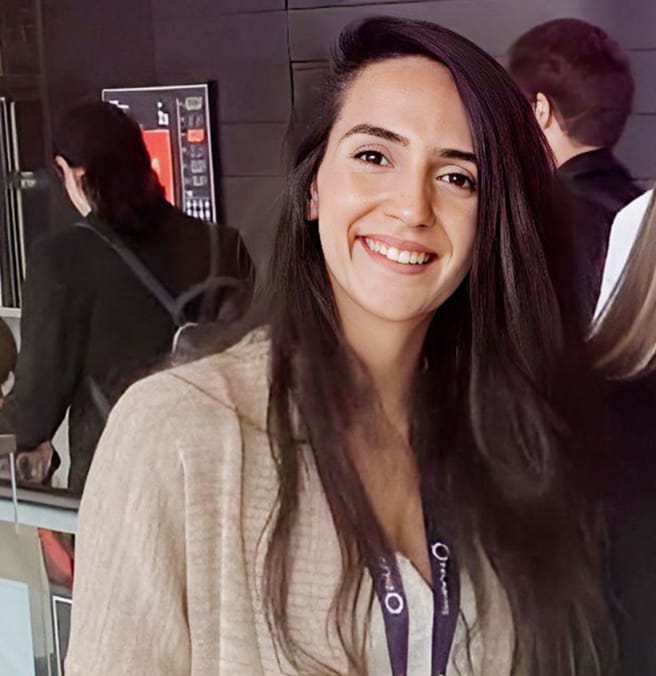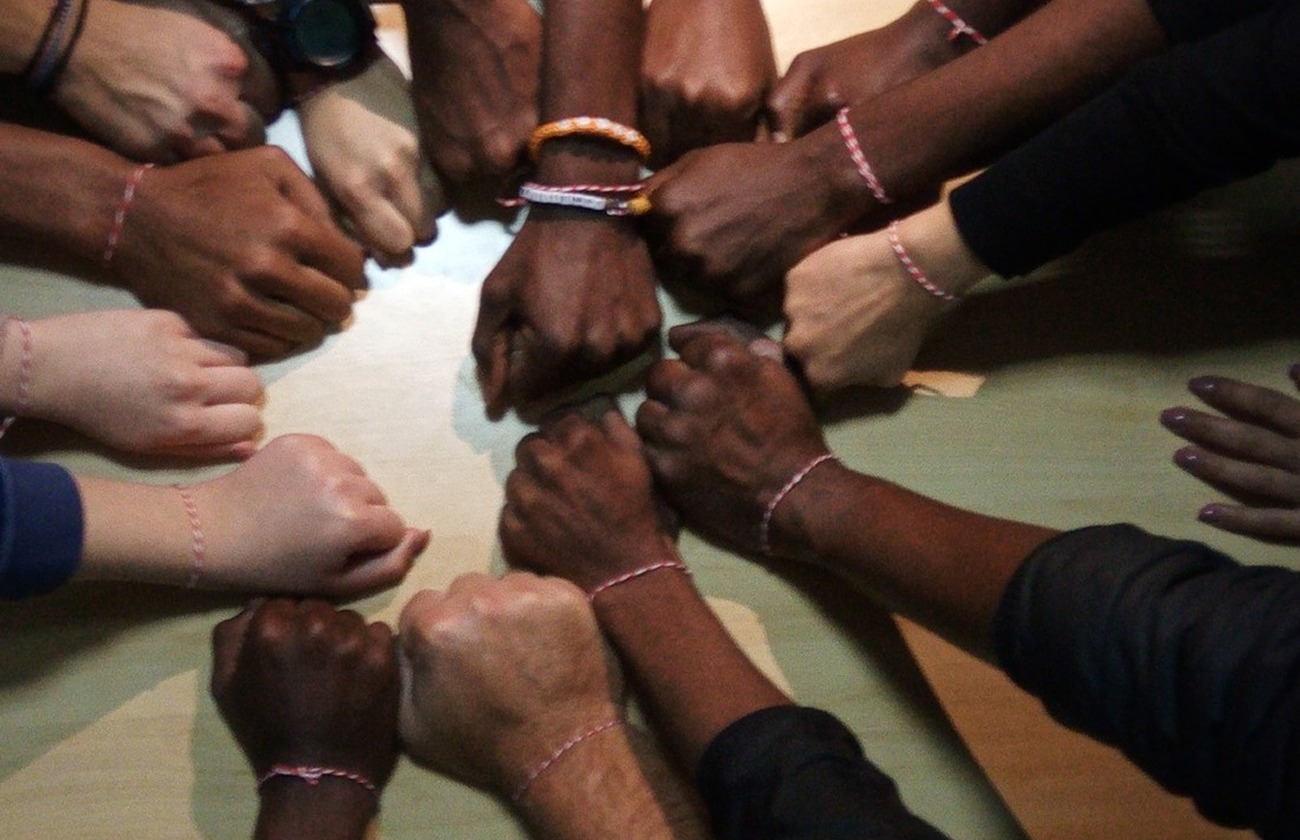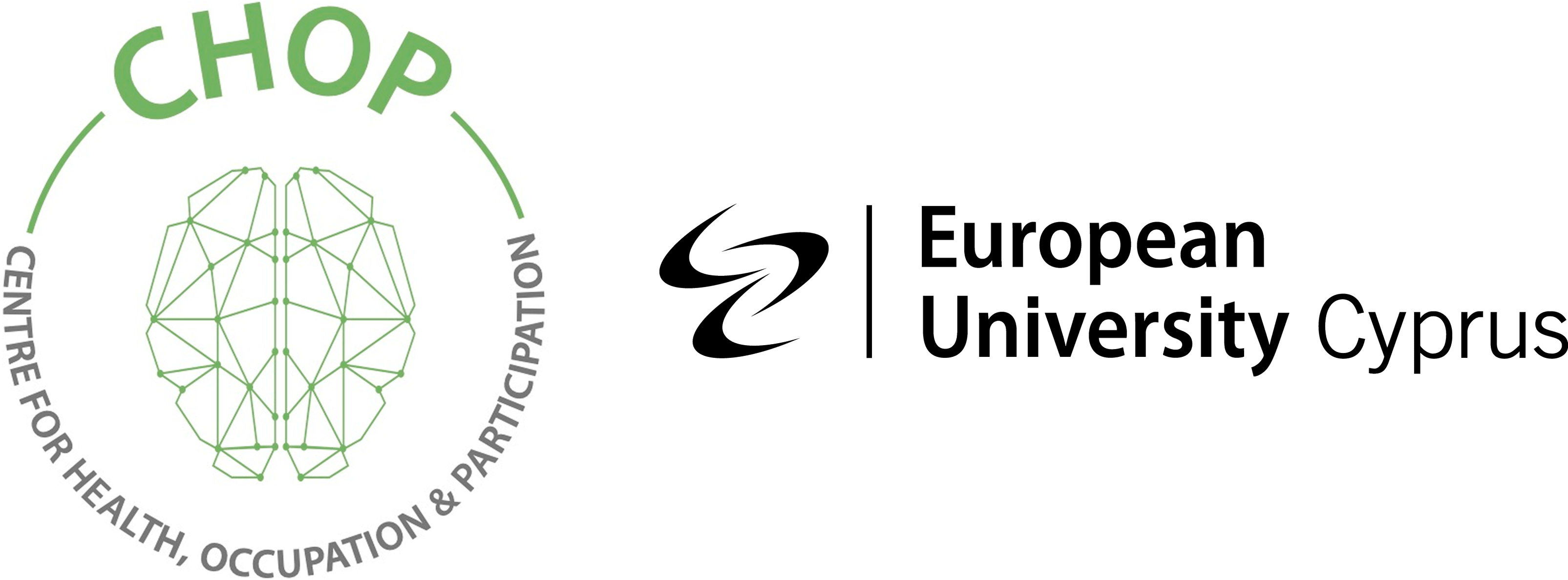Bridging Occupational Gaps with Refugees & Asylum Seekers
Led by: Dr. Pavlina Psychouli
Coordinator: Ioulia Louta
Clinical Educator: Constantina Christodoulou
About Bridging Occupational Gaps with Refugees and Asylum Seekers
The “Bridging Occupational Gaps with Refugees & Asylum Seekers” program was launched in 2018, aiming to assess needs and provide occupational therapy interventions while exploring the emerging role of occupational therapists in refugee and asylum seeker settings. Initiated as a collaboration between the Occupational Therapy Program of the European University Cyprus and the United Nations High Commissioner for Refugees (UNHCR) in Cyprus, the program has since expanded its partnerships to include governmental and private entities, as well as NGOs.
It offers free occupational therapy assessments and interventions to adults, adolescents, and children, including recognized refugees, beneficiaries of subsidiary protection, and asylum seekers. Services are delivered by occupational therapy students under the supervision of professional therapists and academics in various settings, including the community, the asylum seekers’ reception center in Kofinou, semi-independent living homes, and shelters for unaccompanied minors in Nicosia.

Free Service

Group or Individual sessions

Online or In Person

Educating EUC Students
What to expect from this service
Purpose
The lab aims to support the social, cultural, and economic integration of forcibly displaced individuals through occupational therapy services.
Services
It offers free occupational therapy assessments and interventions to adults, adolescents, and children who are refugees, asylum seekers, or beneficiaries of subsidiary protection.
Collaborations
Initially started in partnership with UNHCR Cyprus, the lab now collaborates with government bodies, private organizations, NGOs, universities and individuals for research projects and welcomes professionals and students for collaborative fieldwork.
Settings
Services are provided at the Kofinou Reception and Accommodation Center, semi-independent living homes, community venues, and shelters for unaccompanied minors in Nicosia and Larnaca.
Educational Role
Occupational therapy students from the European University of Cyprus, international students and volunteers deliver the services under professional and academic supervision, gaining practical experience in the field.
The Bridging Team

Dr. Pavlina Psychouli
Assistant Professor, Occupational Therapy & Neurorehabilitation | Coordinator, BSc Occupational Therapy & MSc Neurorehabilitation | Department of Health Sciences
Dr. Pavlina Psychouli is an Associate Professor of Occupational Therapy and Neurorehabilitation and the Coordinator of the B.Sc. in Occupational Therapy and the M.Sc. in Neurorehabilitation programs at European University Cyprus (EUC). She earned her Ph.D. from the University of Southampton, UK, focusing on modified versions of Constraint-Induced Movement Therapy (CIMT) for children with cerebral palsy.
Her research interests lie in neuroplasticity, recovery following brain injury, and movement rehabilitation. With extensive clinical experience, she has worked primarily with pediatric populations and adults with neurological disorders.
Dr. Psychouli is also a certified CI therapist, having completed her training at the University of Alabama at Birmingham, USA.

Ioulia Louta
Occupational Therapist, MSc, Coordinator, Bridging Occupational Gaps with Refugees and Asylum Seekers Clinical Practice Program, Department of Health Sciences
Ioulia Louta, MSc, occupational therapist, is the coordinator of the “Bridging Occupational Gaps with Refugees and Asylum Seekers” occupational therapy clinical practice program at the European University of Cyprus (EUC). The program aims to support the social, cultural, and economic integration of forcibly displaced individuals. Her research interests focus on the contribution of occupational therapy to social transformation and inclusion of diversity. She has extensive clinical experience working with children and adolescents with developmental disabilities and specializes in the psychosocial integration of students in the school environment and the community.

Constantina Christodoulou
Occupational Therapist, BSc, Clinical Educator, Bridging Occupational Gaps with Refugees and Asylum Seekers, Department of Health Sciences
Constantina Christodoulou, BSc, OT, is an Occupational Therapist currently working as a clinical supervisor in the “Bridging Occupational Gaps with Refugees and Asylum Seekers” clinical practice project. In recent years, she has been working at a reception and accommodation center for individuals seeking international protection, where she is involved in both individual and group interventions aimed at enhancing daily living skills, promoting social inclusion, and improving mental well-being through meaningful occupational engagement. Her research interests relate to the identification of the needs of refugees and asylum seekers from an occupational therapy perspective.
Our Impact
Essential Resources
Design of an occupation-based assessment tool for refugees and asylum seekers
Christodoulou, C., Psychouli, P., Louta, I. (2022). ‘Design of an occupation-based assessment tool for refugees and asylum seekers’, WFOT 2022 Scientific Programme Committee, 18th WFOT Congress Occupational R-evolution, Paris, 28-31/ 08/ 2022.
Action for Peace: Short Guide about Working with Displaced Persons for Students and Lecturers
ENOTHE 2022, Action for Peace: Short Guide about Working with Displaced Persons for Students and Lecturers, ENOTHE, accessed 31 October 2021
Development of the Refugees and Asylum Seekers Occupational Satisfaction (RASOS) Assessment Tool
Psychouli, P., Louta, I., & Christodoulou, C. (2023). Development of the Refugees and Asylum Seekers Occupational Satisfaction (RASOS) Assessment Tool. International journal of environmental research and public health, 20(19), 6826
The “Bridging Occupational Gaps with Refugees and Asylum Seekers” Clinical Practice Project
Clinical Practice Project.
Developing an occupational understanding of the needs of Unaccompanied asylum-seeking Minors (UAMs) living in shelters in Cyprus
Psychouli, P., Louta, I., Georgiadou, M. (2022). ‘Developing an occupational understanding of the needs of Unaccompanied asylum-seeking Minors (UAMs) living in shelters in Cyprus’, WFOT 2022 Scientific Programme Committee, 18th WFOT Congress Occupational R-evolution, Paris, 28-31/ 08/ 2022.
Bridging occupational gaps with refugees and asylum seekers
Kapnisi, Elena., Psychouli, P., Louta, I. (2019). ‘Bridging occupational gaps with refugees and asylum seekers.’. ENOTHE 2019 Scientific Programme Committee, 25th ENOTHE Annual Meeting 2019, Athens, 17-19/ 10/ 2019.
Frequently Asked Questions
What is the "Bridging Occupational Gaps with Refugees & Asylum Seekers" program?
The “Bridging Occupational Gaps with Refugees & Asylum Seekers” program, initiated in 2018, aims to provide occupational therapy assessments and interventions to refugees and asylum seekers. It also explores the role of occupational therapy in emerging contexts related to human displacement.
Who can benefit from the services offered by this program?
The program offers free occupational therapy assessment and intervention services to adults, adolescents, and children who are recognized refugees, refugees with subsidiary protection, or asylum seekers.
What types of services are provided?
Services include occupational therapy assessments and interventions tailored to enhance participation in daily life activities, such as entering the job market and engaging in community activities. These services aim to support the social, cultural, and economic integration of displaced individuals into the Cypriot community.
Where are the services offered?
Services are provided in various settings, including shelters for unaccompanied minors, semi-independent houses, community venues, and the Kofinou Reception and Accommodation Center for Applicants for International Protection.
Who delivers the services?
Occupational therapy students from the European University Cyprus, supervised by academic and clinical occupational therapists, deliver the services. The program collaborates with governmental and non-governmental organizations to ensure comprehensive support.
How can someone access these services or get more information?
For more information or to access services, individuals can contact the program at +35722559486 or via email at bridgingotgaps@euc.ac.cy.
Are there any costs associated with the services?
No, all occupational therapy services provided by the program are free of charge for eligible individuals.

Bridging Occupational Gaps with Refugees and Asylum Seekers
A collaborative program providing free occupational therapy services to refugees and asylum seekers across Cyprus, led by EUC students under professional supervision.
